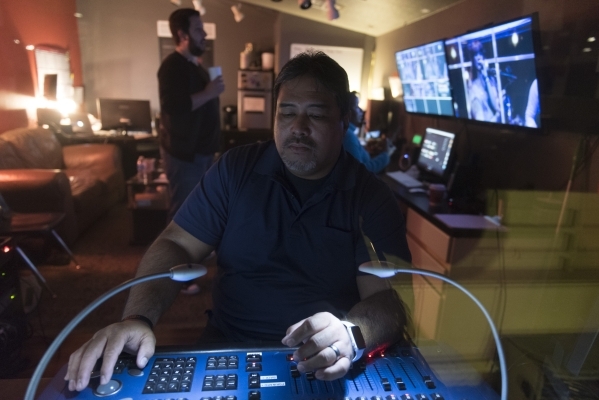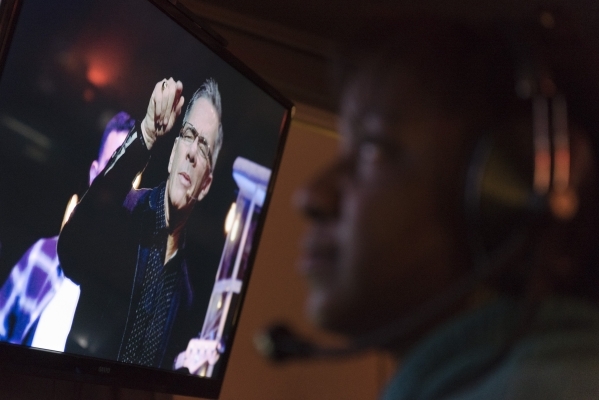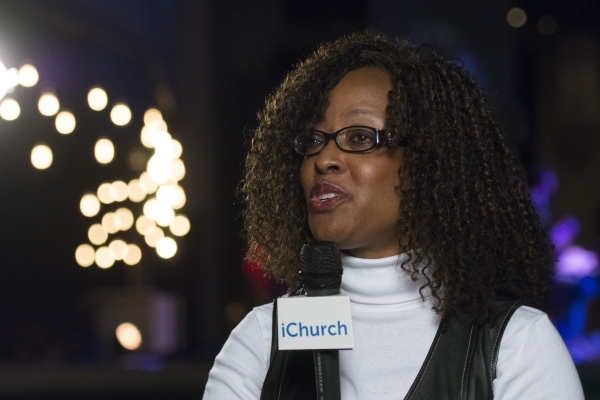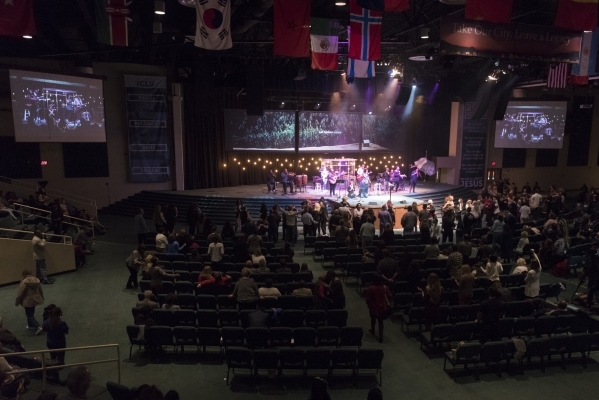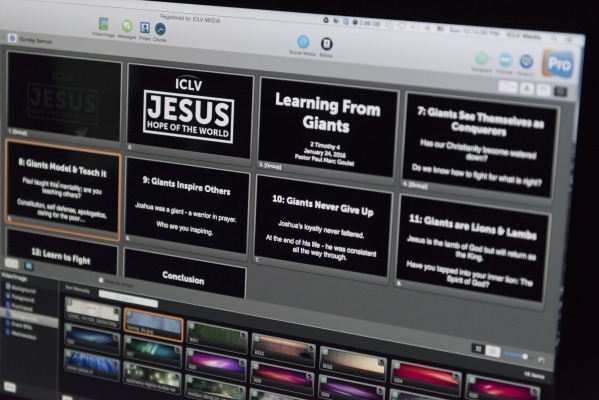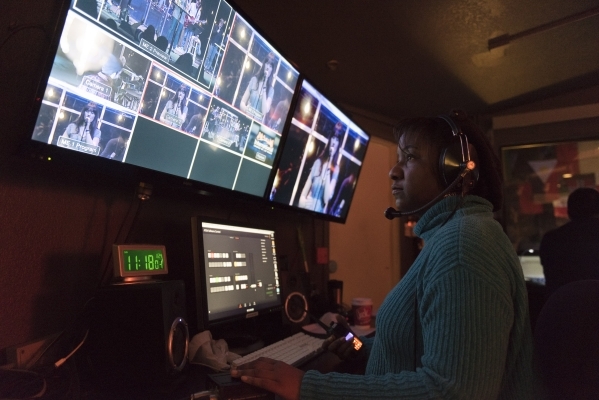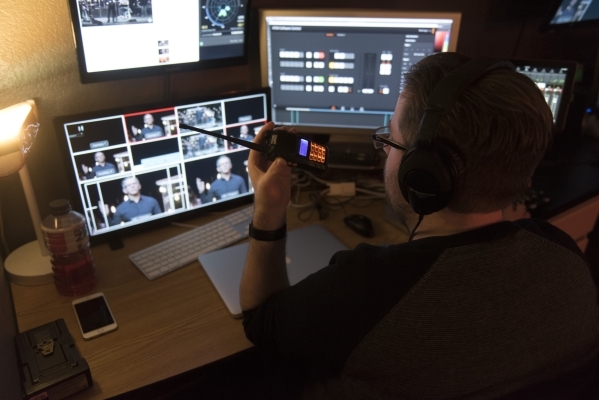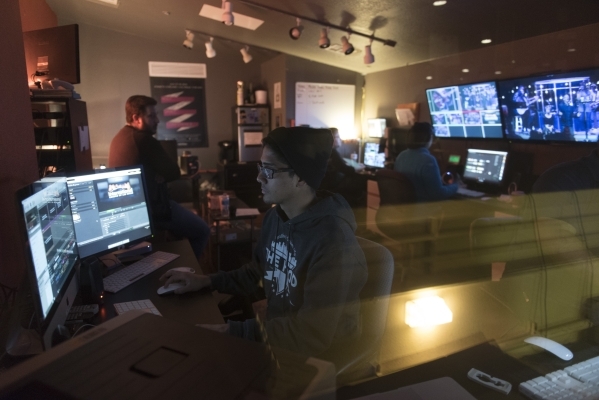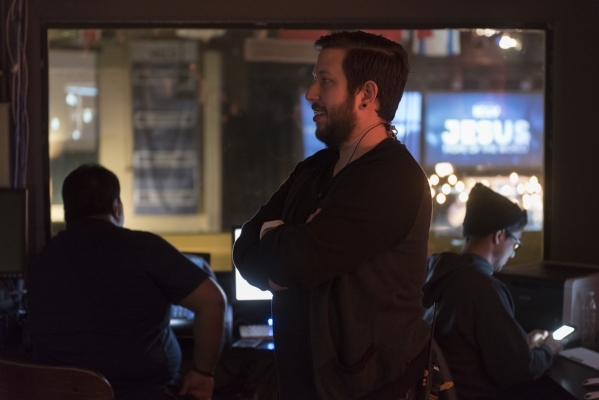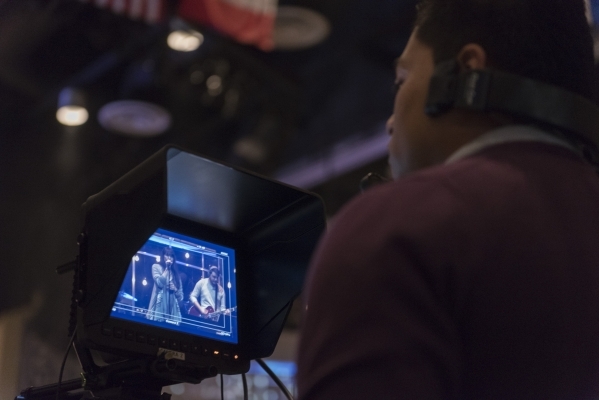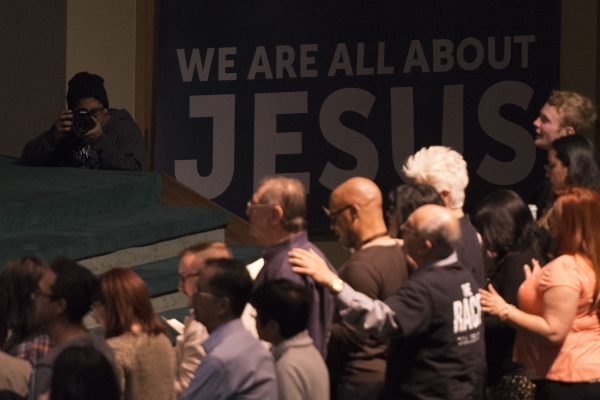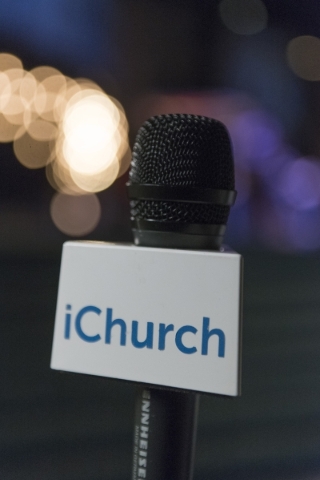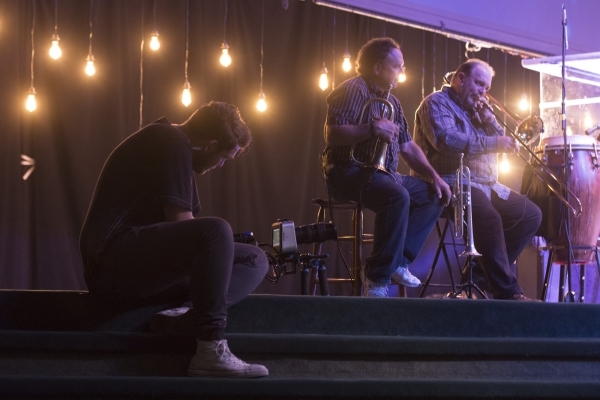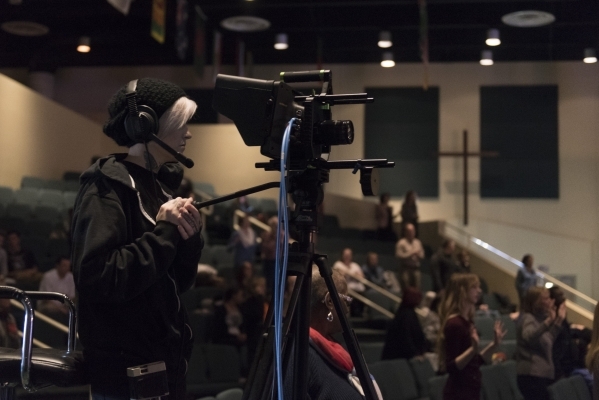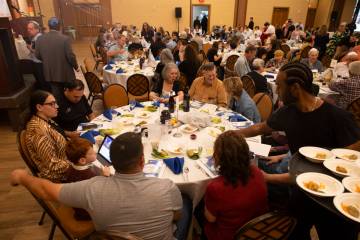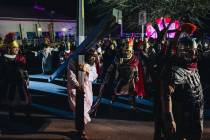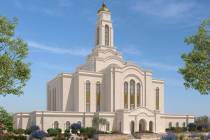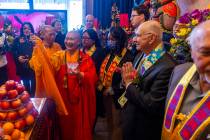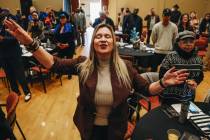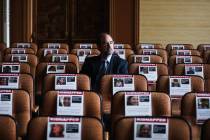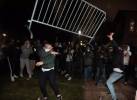Streamed services mean never missing church
Pastor Paul Goulet raises his right arm, bows his head and furrows his brow. He asks his congregation at International Church of Las Vegas, swaying back and forth in front of him, to believe that they can pray for someone and they will be healed. Then he looks up.
"Even as you're on the bus watching on your mobile phone, I can just feel it in my spirit, someone is being touched on a bus by the power of God."
Pastors at several Las Vegas churches say streaming their services online offers a new way to reach people outside the traditional walls of the sanctuary. The growing trend enables the church to reach the sick and disabled, give potential new members a sense of if they'd like to attend, and even evangelize to people who may never set foot in Las Vegas.
Ed Stetzer, a Christian author who has written about technology and Christianity, says it wasn't until about five years ago that technology had matured to allow live streaming of broadcasts. The desire to take advantage of technology to reach out to people is simply the continuation of a long tradition of being "where people are conversing or available," Stetzer said.
"Churches would have tent meetings when tents were a big thing, then churches would be on radio, and now it's online," he said.
Thus far there seems to be a digital divide among churches, he said; only churches with congregations of 500 or more typically have the resources to purchase cameras, broadcast services and maintain a social media presence. For smaller churches, live streaming "is just out of their reach," he said. Of those larger churches, most with memberships over 1,000 have dedicated significant resources to online services.
Another sophisticated service in the Las Vegas Valley is Canyon Ridge Christian Church, whose average weekend attendance is 6,500, including more than 800 people who watch online. Those viewers can chat with a Canyon Ridge host, who takes prayer requests and connects them to a pastor via a private chat feature. Viewers can also connect with pastors through telephone, Skype, email or Facebook appointments.
Helping to oversee the online services is Scott Beck, whose title is increasingly common: online pastor. As online pastor, Beck monitors Canyon Ridge's Web traffic and ministers to church members and viewers through social media, email, telephone or in person. Once a year he travels to Dallas for a conference called iMinistry to network with other online pastors and discuss the latest trends in Web evangelism.
Some of the results have Beck excited. One man he ministered to online flew from his home in South Dakota to be baptized.
"A win for us, I would say, is someone growing in their relationship with God, either online or in brick and mortar," Beck said. "Jesus had compassion for the multitudes, and this is another way for people to learn about God, who loves them so much."
In theast month, viewers in 68 countries have watched Canyon Ridge services, Beck said, with excitement. This international spread is furthered by technology that allows foreign viewers to watch closed captioning and chat in their native language. He's talked with a man in Pakistan who wants to start a home church there. Josiah Philip, a communication pastor at The Crossing Christian Church in southwest Las Vegas, said a man in Abu Dhabi emailed him last week saying that he wished they had a church there.
In addition to reaching people in the nearby community, online services, Beck said, create the opportunity for "missionable moments": prompts for viewers to share their faith with their neighbors.
"For us a missionable moment is just getting to know your neighbors and the people next door to you, regardless of what type of religion they are or what type of belief system they have," Beck said. "We still want to be a part of the community, and build relationships."
Thus far, streaming services online seems to be more common in evangelical churches such as Canyon Ridge and The Crossing, rather than in more traditional mainline Protestant denominations, such as Presbyterians, Episcopalians and Methodists. This is because evangelicals traditionally have an "entrepreneurial bent" to them, says Stetzer, the Christian author.
"I think you'll find entrepreneurial evangelicals taking the lead with this. The traditional church is not going to be broadcasting the services."
One point on which Stetzer, Beck and others agree: the "online church" should not replace physical community.
"People are engaging … it's not going away, and God gave it to us," Beck said, "so we might as well know our users just as Google or Amazon would."




